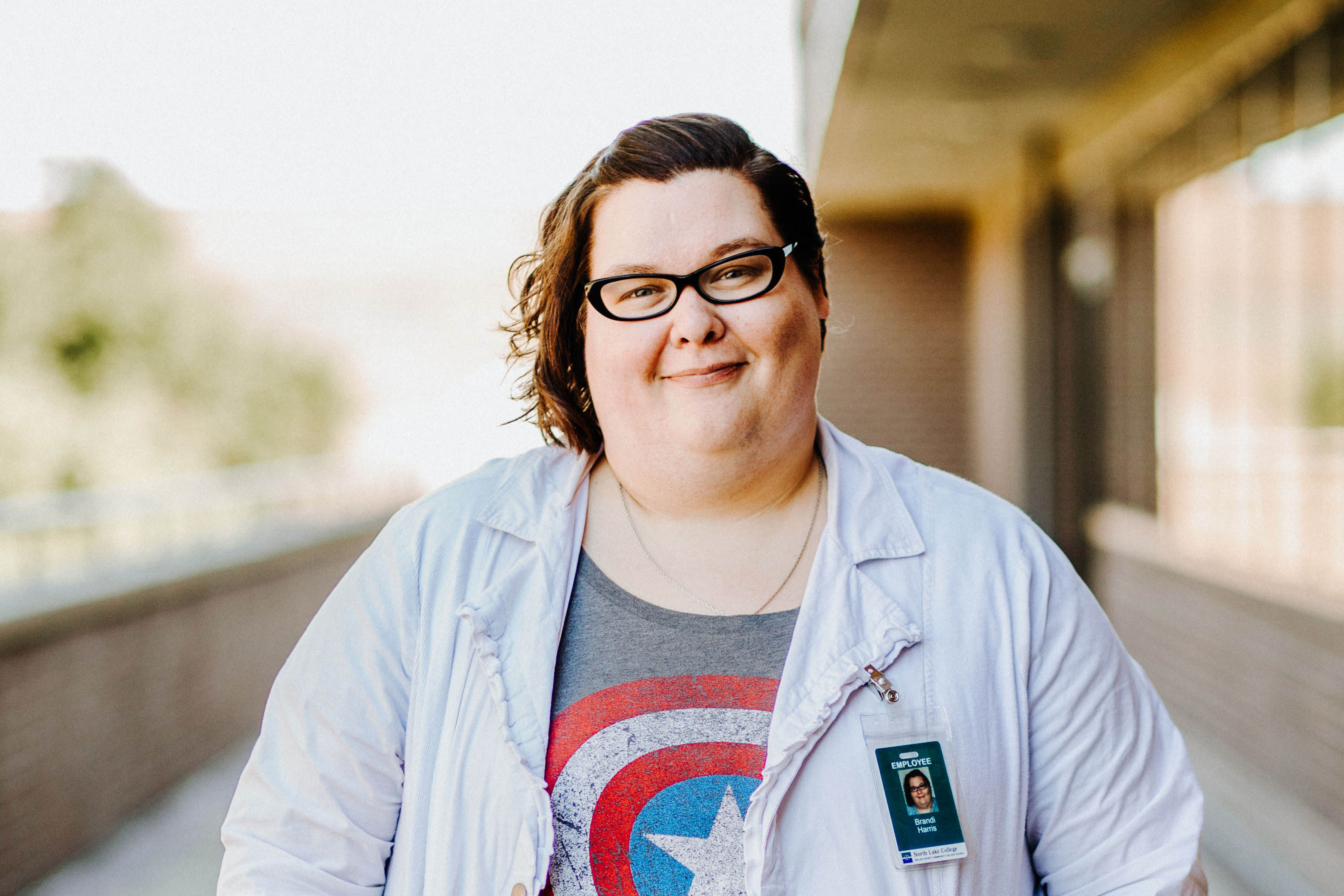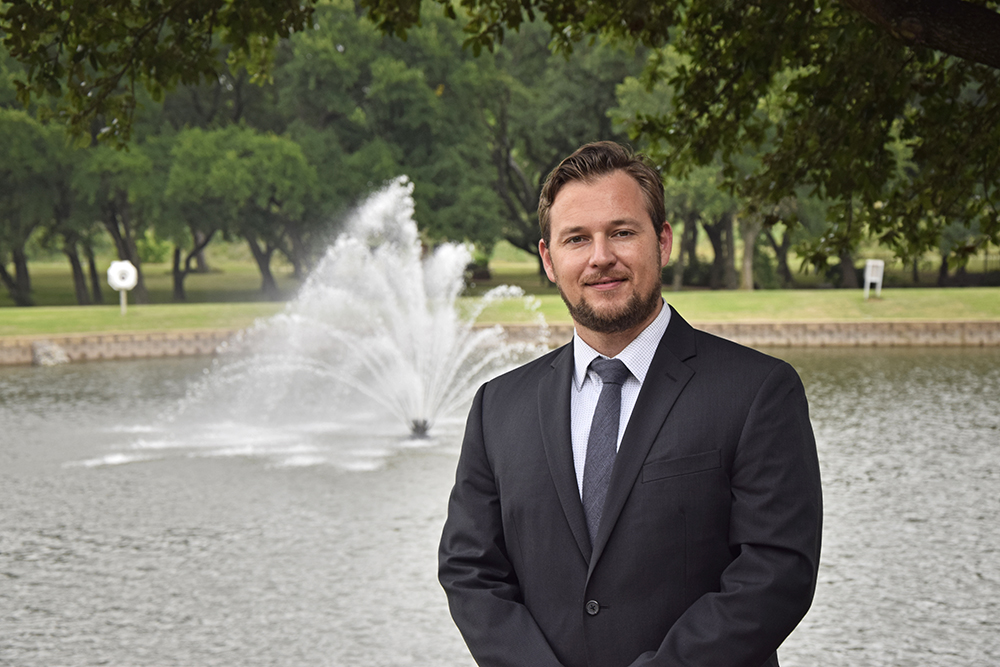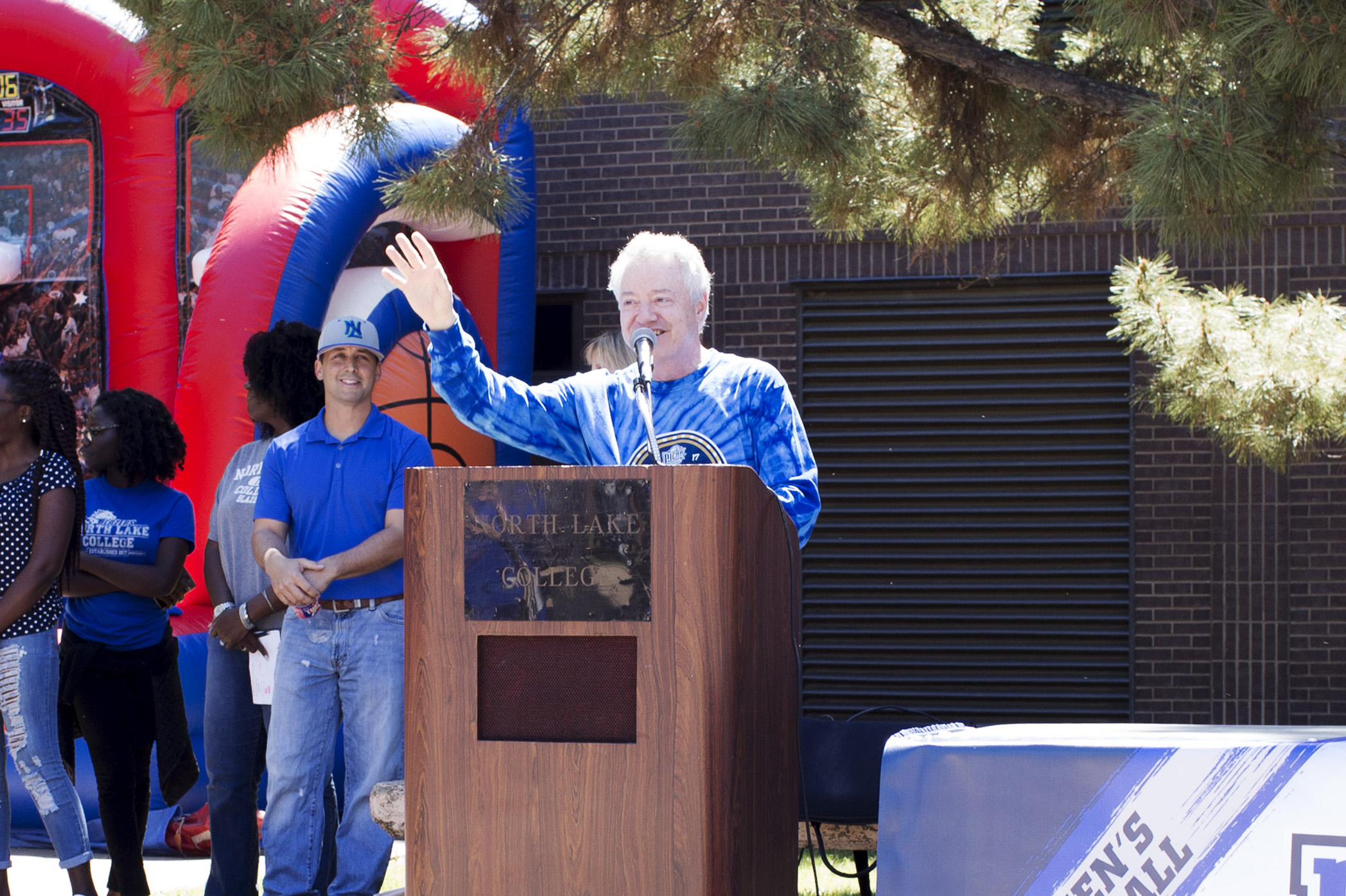MaryAnn McGuirk is on the front lines.
When new students arrive on North Lake College’s campus, McGuirk is likely to be there. She teaches EDUC 1300, a class that equips students with study strategies and time management skills. In other words, it’s a class that teaches how to succeed in college. And it’s a class for which McGuirk – trained in psychology and eager to help beginning students grow – is the perfect fit.
Escaping the obstacle course
“I work a lot with developmental students,” McGuirk says. “Their first semester, usually.”
Developmental students are those who have fallen behind in the years prior to college and need extra training before they begin college-level courses. Most arrive on campus straight from high school, where they might have faced any number of obstacles: McGuirk has taught students who worked full-time, became parents as teenagers, dealt with unsupportive or abusive parents, or struggled with learning disorders like dyslexia. A few of her students have even lived in their cars and showered at the college gym.
“I always loved working with new students,” she says. “It takes a certain type of person.” That is a type that MaryAnn McGuirk fits perfectly: enthusiastic, compassionate, approachable, generous with her time. She knows that students who are the first in their families to go to college may need extra help understanding certain academic requirements. She makes sure her students know they can seek her help – even when they aren’t taking her class anymore.
She explains, “We take for granted that the students know everything and they don’t. Especially for first-generation college students. Those students need help.”
One-on-one mentorship
Each semester, McGuirk asks to see her new students’ schedules and learns who their other professors are. She asks about students’ interests and connects them with faculty mentors who can help them pursue those interests. And she also helps them form study groups with classmates.
With degrees in psychology and counseling, McGuirk also personalizes her instruction when she leads tutoring sessions at an after-class developmental reading lab. “I might work one on one with them,” she explains, “going around making sure they are prioritizing their work, looking at the strategies they’re using.”
A confidence boost
Often, the biggest boost developmental students need is the hardest lesson to teach: confidence. “Think about all the obstacles they’ve overcome to be sitting in the college classroom,” McGuirk points out. “If they can use those same tools, those same strategies, to help them be successful in school, they’d have it made. They get hard times. They’re not afraid of hard work.”
She tries to help students equip themselves with study skills. She might ask, “How did you get to college after that background? How can we get you to use those strategies to keep propelling forward? Because you’ve got the grit, it’s just learning that you can take that grit that you had, that you have at work every day, and applying it to academics.”
Fast track to success
McGuirk has helped transform developmental courses at North Lake, implementing changes so that students are ready to take college classes in just eight weeks. So far, 62 percent of students have passed the eight-week accelerated developmental class, roughly the same rate as when the same coursework took 18 months.
That time savings leads to huge gains for students. “You wouldn’t believe how nice it is to see these students able to go into a higher level and finish quicker,” McGuirk says.
“What’s really nice is to see them the next semester. They’re reading, they’re doing great, nobody needs to recognize that they started in developmental classes. Once they have that confidence level they really become autonomous.
“We know their GPA is as high or higher than students who start at universities. So it’s just that extra help at the beginning – just giving them a boost.”
Yes, McGuirk acknowledges, an eight-week class is a very short period of time. But she is proud to say that the results are working. “They’re graduating left and right now. Students are at all different universities. They’re already working.”
“If we can help them get through this, their lives change.”






